An Italian director on her own wavelength didn’t seek out the limelight — it found her
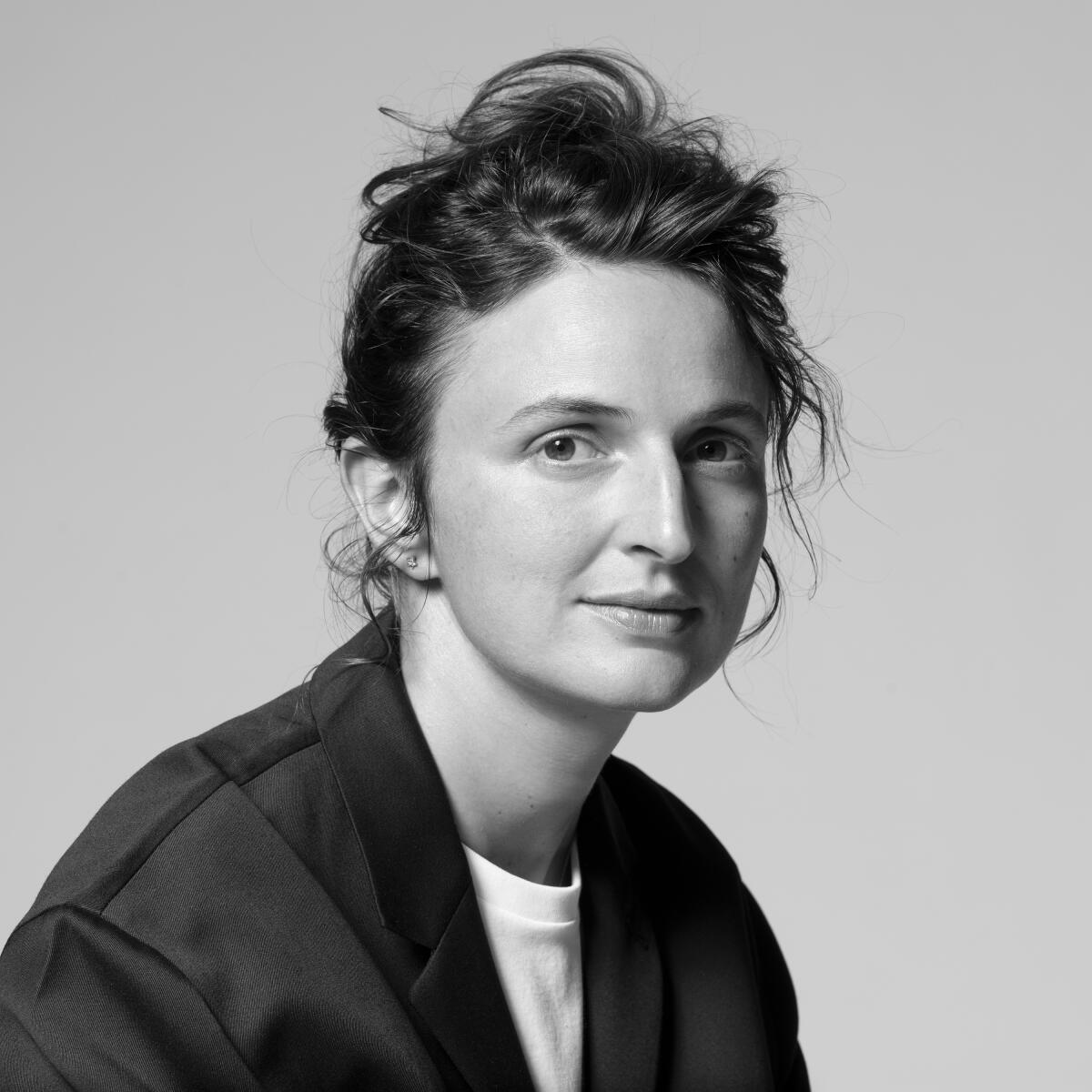
- Share via
When actor Josh O’Connor first saw a film by director Alice Rohrwacher — it was her 2018 feature “Happy as Lazzaro” — the experience was revelatory. “It was as if I’d gone into the cinema and found someone who was everything I’d ever wanted from a film,” he says.
O’Connor was so enchanted by his experience of “Lazzaro,” the story of a farm worker who befriends the son of a rich landowner and then travels through time, that the actor best known for “The Crown” set out on a mission to contact Rohrwacher. It wasn’t an easy task. Despite being one of the most celebrated Italian filmmakers working today, Rohrwacher isn’t readily accessible. In fact, at one point he just addressed a letter to her hometown of Orvieto, Italy, hoping it would reach her. It likely didn’t.
Eventually, according to Rohrwacher, one of O’Connor’s missives arrived at her parents’ honey farm. That planted an idea. Rohrwacher had been looking for someone to star in her upcoming film, “La Chimera” (out this weekend in limited release). O’Connor’s attempts to contact her were destined to bear fruit. He now plays Arthur, an Englishman in 1980s Italy with a mysterious gift for finding Etruscan tombs, which he and his crew then rob, selling the purloined artifacts to an antiquities dealer.
O’Connor’s pursuit of Rohrwacher is a situation that feels apropos to her films, imbued with an intoxicating magic in which reality and fantasy somehow combine. Blending music and mythos, her work seems to span eras, realms and styles. Indeed, the director describes “La Chimera,” in which Arthur seems to be seeking something more than buried treasure as he mourns the death of his lover, as about “the beyond.”
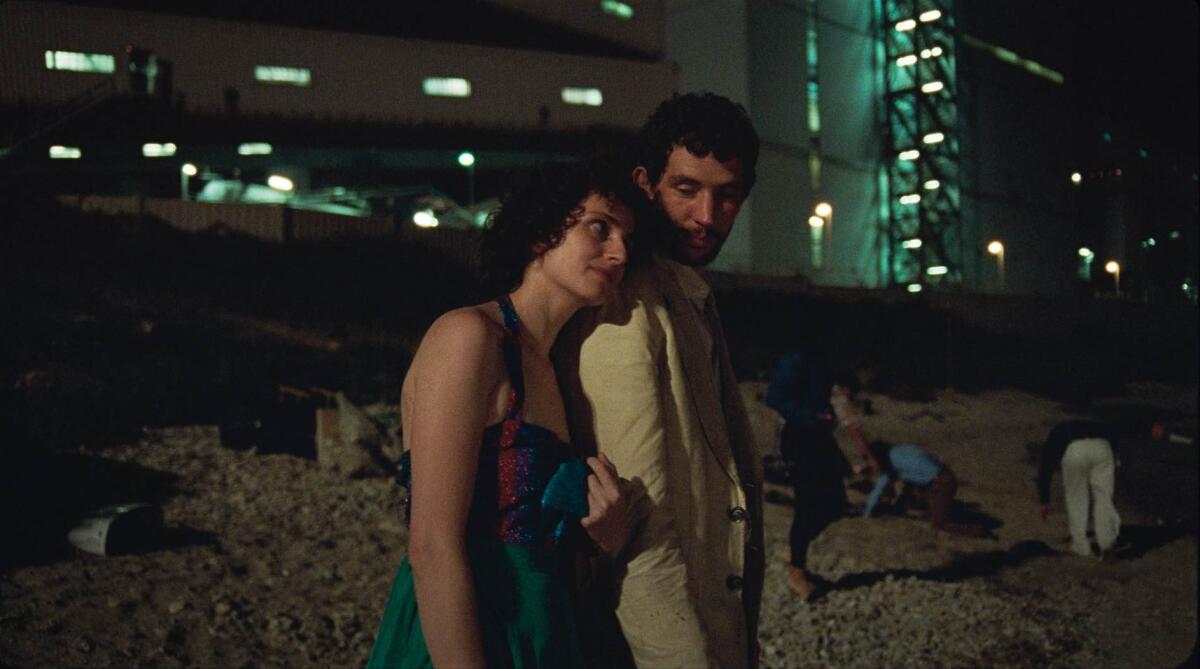
“There is, of course, this tragic core to my films but they are filled also with a lot of life, a lot of adventure, a lot of things happening,” says Rohrwacher, 42, speaking on a video call through a translator. “Not tragic as much as a lot of life there.”
Ensconced in an editing studio where she’s working on a short, Rohrwacher speaks with passion in long phrases, having to pause at times so the translator can keep up. While still underrated on American shores, Rohrwacher has won over a lot of high-profile fans beyond O’Connor. Alfonso Cuarón, the Oscar-winning director of “Roma,” saw her semi-autobiographical 2014 feature “The Wonders,” about a young girl’s coming of age amid a family of beekeepers, and became, as he tells The Times via email, “enamored by the film’s poetry and generosity.” Cuarón went about recruiting Rohrwacher to make the short film that became 2022’s Oscar-nominated “Le Pupille,” a WWII-set tale about the whims of girls at boarding school.
“I believe Alice to be one of the most important filmmakers working today,” he says, “one that, while working with very grounded characters, invites us to dwell through the sensuality of her images into what is intangible, reaching the highest levels of mythical resonance.”
Isabella Rossellini, who plays the mother of Arthur’s lost love in “La Chimera,” compares Rohrwacher to her father, auteur Roberto Rossellini of “Rome, Open City” and “Paisan,” among others. “I do see my father’s film [and] Fellini,” Rossellini says. “I’m moved by that. I’m moved that a generation can absorb it — and not copy it or do the same style, but absorb it and take it further.
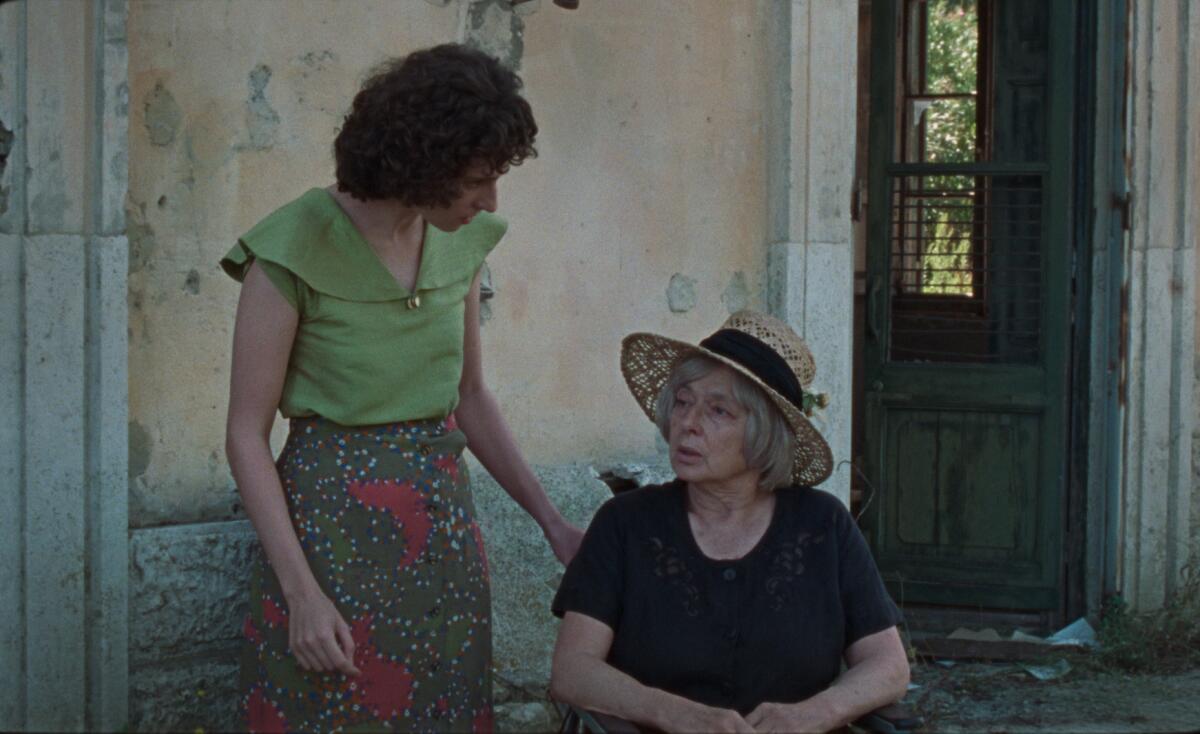
Rohrwacher cites Roberto Rossellini as one of the filmmakers who sparked her interest in cinema, explaining that it’s no accident that his daughter ended up in “La Chimera.” But, she adds, “I never would have thought that after meeting her I would end up loving her more than her father, actually.”
Despite her early affection for Rossellini’s films, Rohrwacher, who studied literature and philosophy at the University of Turin, says she approached filmmaking from the “outside.” At a certain point, she realized that cinema was a “summation” of everything she loved — painting, theater, music, human beings. (There is often singing in her films: “La Chimera” showcases a group of troubadours performing a ballad about the characters that interrupts the action; “Le Pupille” has a chorus of girls.)
Rohrwacher’s roots are crucial to her art. She still lives in the Umbria region near where she grew up, a town called Castel Giorgio. Her sister Alba is an actor who has appeared in all Rohrwacher’s features except for her debut, 2011’s “Corpo Celeste,” about a girl’s immersion into Catholicism. (Both siblings have also worked on episodes of HBO’s “My Brilliant Friend.”) In “The Wonders,” Alba plays a version of their mother, loving and frustrated with her gruff husband, who employs their children as labor in their honey business.
Rohrwacher’s connection to the past — her own and that of the place she still resides — is evident in the stories she consistently chooses to tell. “All my movies actually come from a long time ago,” she says.
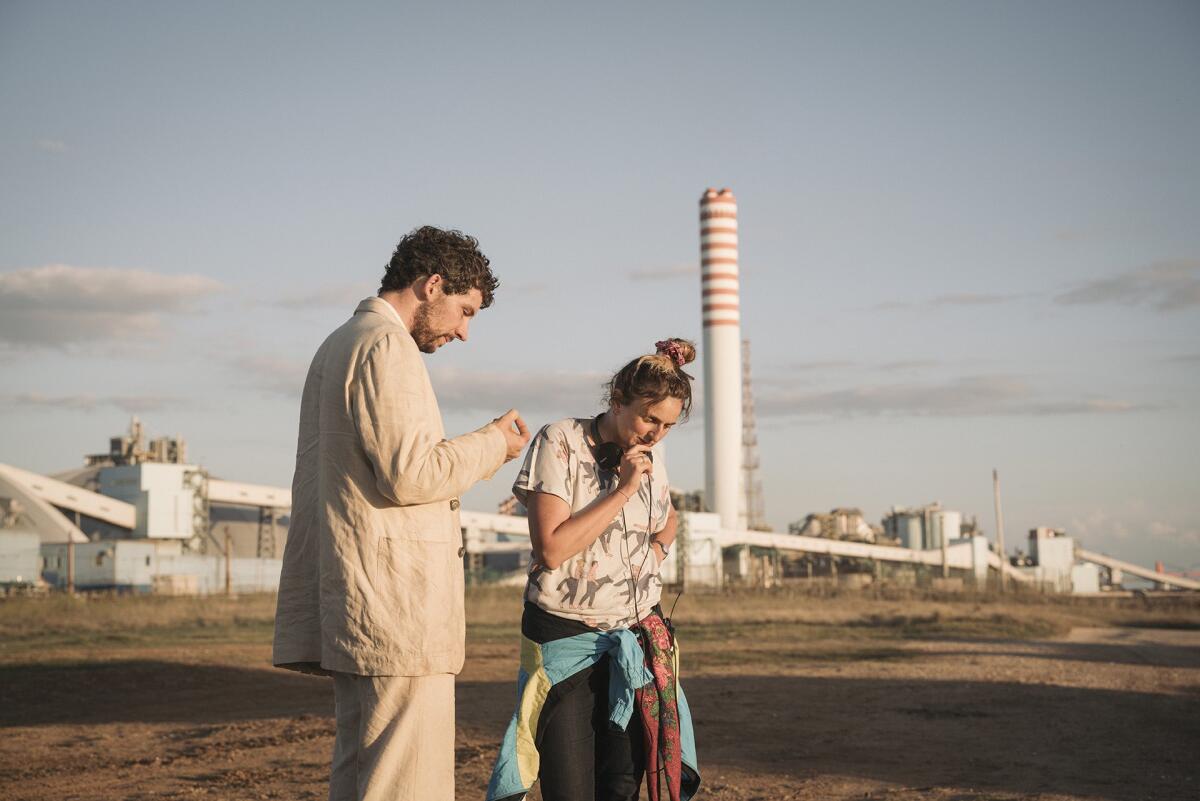
The stories of the tombaroli, the grave robbers who populate “La Chimera,” were ones she knew from childhood, as well as tales about the trafficking of illegal artifacts. Although these ideas had been swirling in her head for years, she decided to revisit the material during the pandemic. “I wanted to reflect on our collective relationship with death,” the filmmaker says, “not just [through] the grave robbers and archaeological theft, per se, but actually what you can find about our relationship with loss and with those who are no longer there.”
She thinks of “La Chimera” as a “vertical journey through time,” as opposed to the horizontal one that her hero in “Lazzaro” takes when he suddenly wakes up in the future after a great fall. In “La Chimera,” below the ground there are not only remnants of a long-dead civilization but also Arthur’s suppressed grief.
“‘La Chimera’ is like a treasure hunt for what is gone,” Cuarón writes. “Our longing to recover vanished memories, objects and love can only result in scattered fragments of what is lost.”
While the film is literally about archaeology, Rohrwacher also wanted to be archaeological in how she depicted the events onscreen, using older film stocks such as 16mm and 35mm while working with her regular cinematographer, Hélène Louvart. “I wanted to show the variety of formats that have characterized the history of cinema because I think that for young people that is very important,” Rohrwacher says. The materials of cinema are just as crucial to her as the famous names.
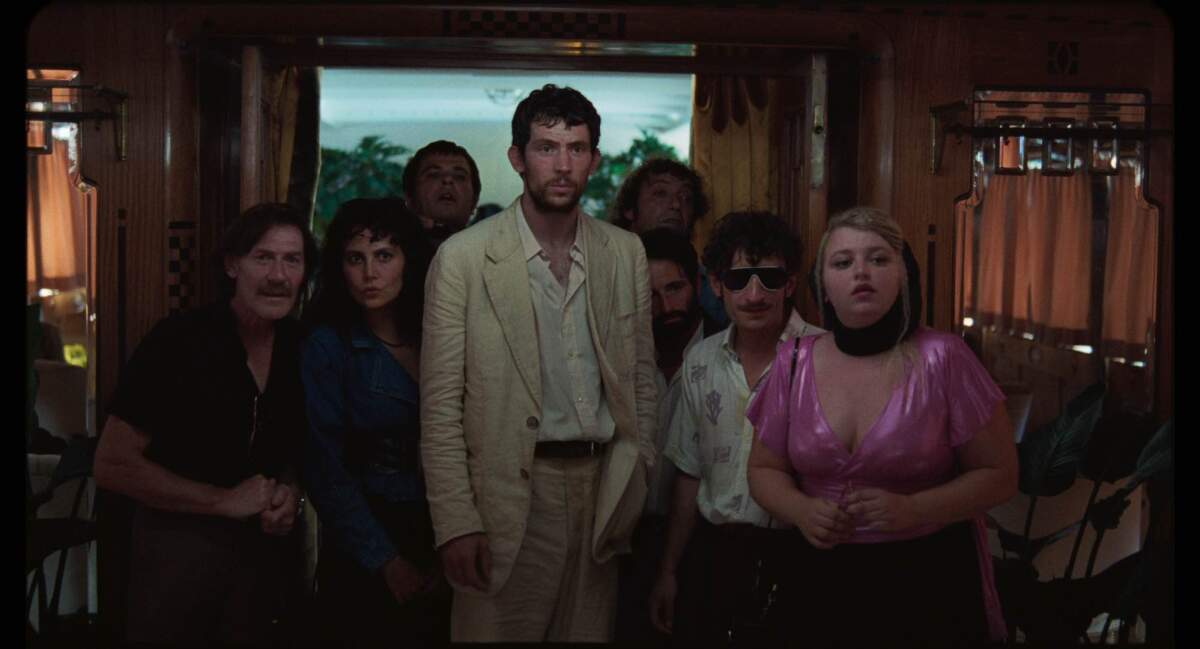
O’Connor likens the experience of stepping onto a Rohrwacher set as being inside the film itself. “It’s so special and ethereal,” he said. “Her world is like magical realism in itself.” Most of the cast members, he says, are people from her town who are not actors. During the shoot, O’Connor lived in a camper van that was parked in the garden of one of Rohrwacher’s friends.
“She works with a lot of friends,” Rossellini says. “It’s a lot of people that are living next to her farm or work with her father. There is great camaraderie.” The actor already thinks of Rohrwacher as “somebody that can really mark Italian cinema.”
As much as Rohrwacher’s films dig into history — personal or otherwise — she is interested in moving her medium forward, creating the kind of pictures that linger long after her audience leaves the theater.
“Maybe my films are not perfect — maybe a machine could do that, but that’s not what I’m after,” she said. “What I’m after is making films that are alive and that are full of life and that constantly have something new to show you, something new to tell, and indeed you can watch them over and over again and there’s always something, some kind of life that comes to you from the movie.”
She’s talking more as a “spectator than a director,” she says, but watching a Rohrwacher film and speaking to her are almost one and the same, per her collaborators.
According to Cuarón, “It’s rare to meet a filmmaker that completely embodies as a person the essence of their films. And Alice is like that.”
More to Read
Only good movies
Get the Indie Focus newsletter, Mark Olsen's weekly guide to the world of cinema.
You may occasionally receive promotional content from the Los Angeles Times.









